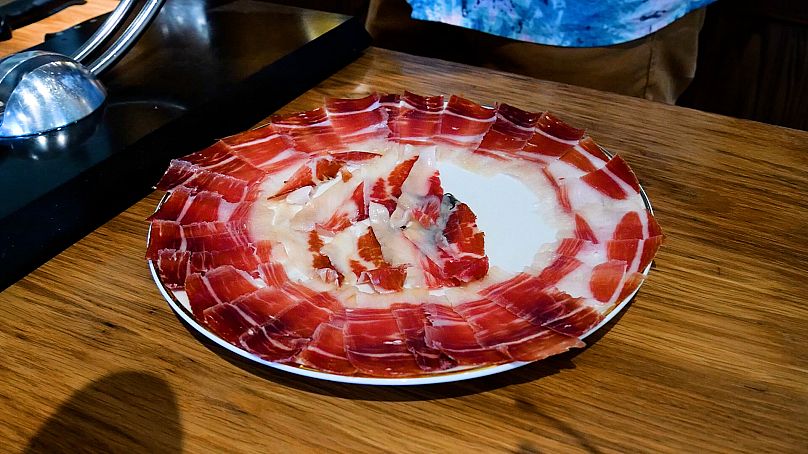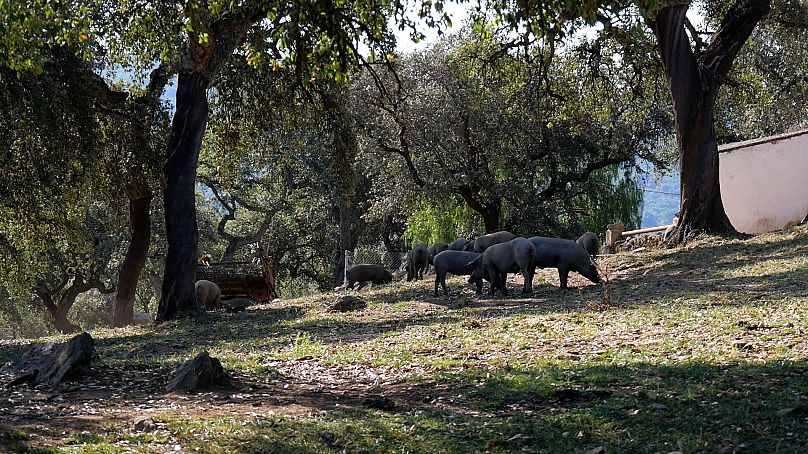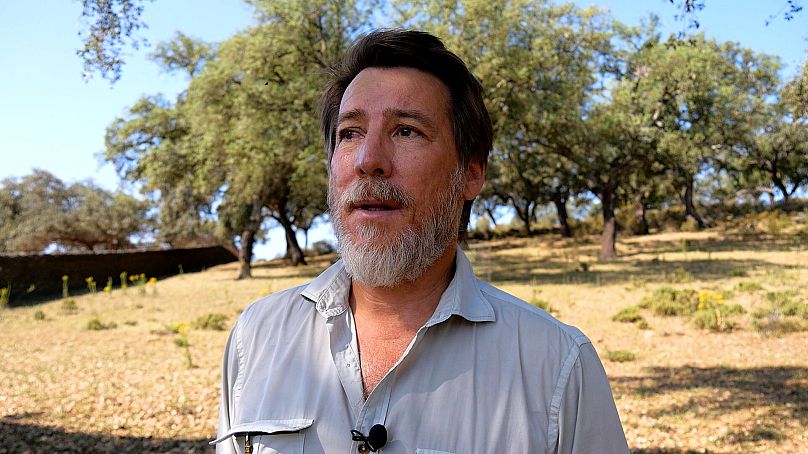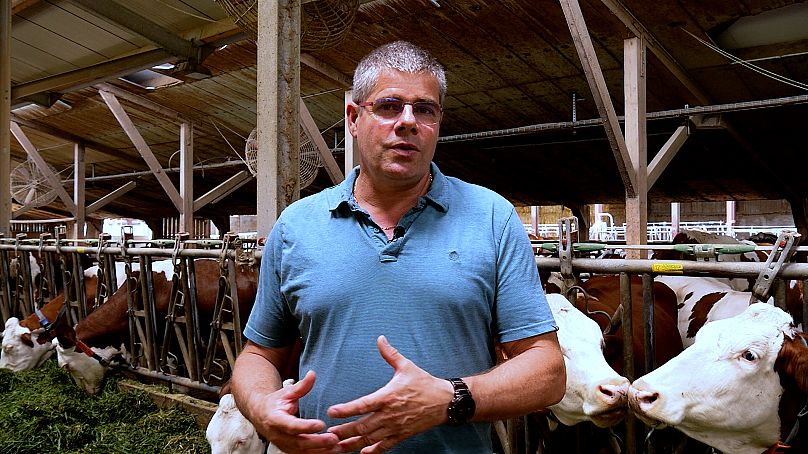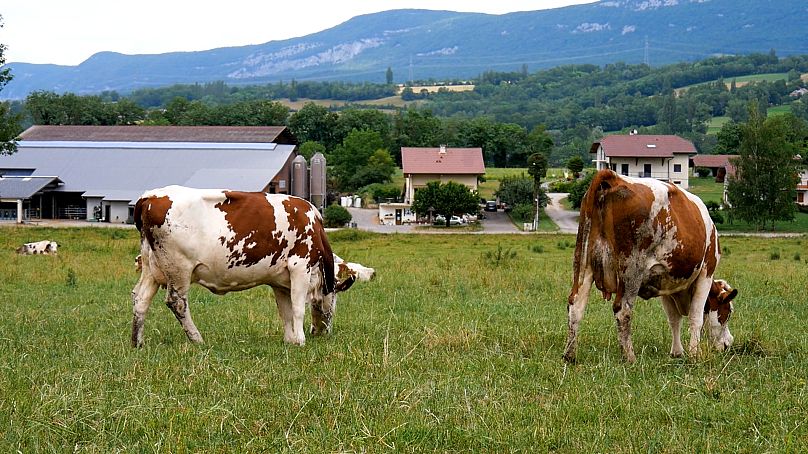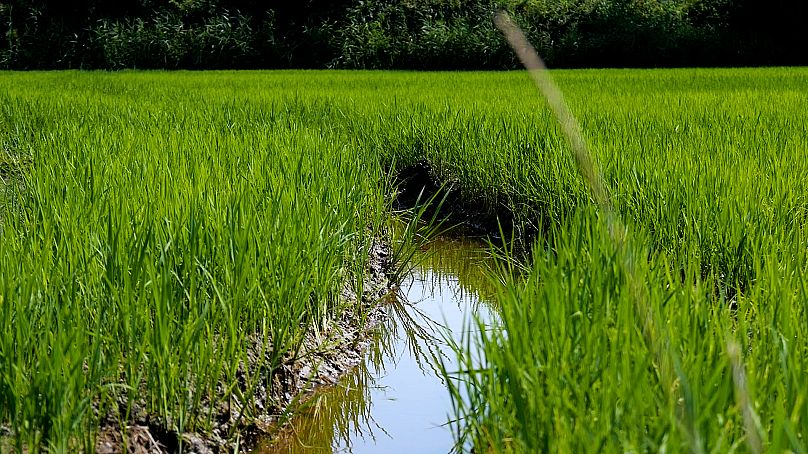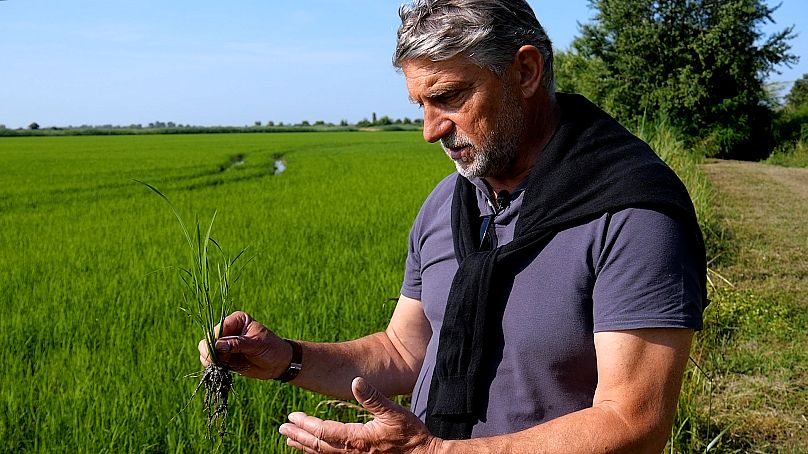From the mountain pastures of Savoy to the Rhone delta and undergrowths of Andalusia, climate change is having a serious impact on agriculture.
Famous European speciality foods are being threatened by high temperatures, drought and rising sea levels.
 ADVERTISEMENT
ADVERTISEMENT
 ADVERTISEMENT
ADVERTISEMENT
Human-induced climate change is having a direct impact on the health of agriculture and livestock farming around the world. In Europe, Parmesan, Camargue rice, Espelette pepper, Kalamata olives, Savoy cheeses, and Iberian ham are just some of the local specialities suffering from its effects.
Now producers are working on solutions to preserve these local traditions and products.
Iberian pigs don't have enough acorns to eat
The Andalusian sun shines through the oak leaves onto the brown grass where the Iberian pigs roam. They wander through the 'Dehesa', a typical undergrowth in southwest Spain full of different oak tree species.
This is the ideal habitat for these pigs, for whom the region is famous for its "pata negra bellota" ham. This label indicates the highest quality and to preserve it the pigs must have at least a hectare of land to graze on the acorns.
But oak trees suffering from drought didn't produce enough acorns last year. Farmers had to adapt giving each pig more space to graze and have enough to eat.
"Instead of giving each pig two hectares, we had to give them three hectares to maintain the same quality," explains Rafael Barandarian, an Iberian pig farmer at his farm Cabeza del Gato.
Another way of keeping the quality label and feeding the pigs enough acorns is to vary the species of oak present on the farms.
“We prefer farms with two or three species of oak," explains Maria Castro Bermudez, head of communications at Cinco Jotas, one of the most prestigious brands of Iberian ham.
"Because if we don't have good acorn production from the holm oak, the cork oak will have what we need."
The priority is to provide the pigs with acorns and grass during the fattening period from October to January, known as the montanera. It is this traditional diet that gives the meat and its fat its distinctive flavour.
After slaughter, the ham is kept in a cellar for up to five years for maturing. It weighs up to 8 kilograms and costs around €700.
Grass no longer grows in Savoy
In France on the other side of the border, the problem is the same. Savoy cheeses are also suffering from drought caused by climate change.
Jean-Luc Duclos rears his 150 cows that supply milk for Savoy Emmental, Tomme and Reblochon in the Usses Valley between Annecy and Geneva.
At his farm called 'Le Champenois', the grass is usually green, but it might not be for the whole summer.
“That's because of the drought," says the farmer, pointing to cracks in the earth.
"The lack of water means the earth tightens up, shrinks and creates cracks like this. When the next rain arrives, we may be able to fill them in.”
The main challenge is allowing the cows to eat grass so that it can retain its IGP (Protected Geographical Indication) label and, above all, its quality standards.
“But grazing is under threat," explains Jean-Luc Duclos.
"Grass production is threatened by high temperatures. When it's 30 degrees, the grass stops growing."
Last year, 28 kinds of cheese requested a change to the specifications because of the high temperatures.
But easing the requirements won’t solve all the problems these speciality foods face as cattle themselves don't cope well with this type of heat.
"A cow is fine between -5 and +25 degrees (Celsius), but if it gets hotter, the ox will be under stress," explains Jean-Luc Duclos.
He has noticed that some cows produced 2 to 3 litres less milk every day. The quality of the milk has also been affected, slowing down cheese production.
Rising Mediterranean seawater threatens Camargue rice
In the Camargue region on southern France's Mediterranean coast, the problem is almost the opposite. There's too much seawater.
France's biggest wetland is under threat because the level of the Mediterranean is rising and its saltwater could soon invade the rice fields.
“Salt is an excellent weedkiller," explains Bertrand Mazel, a rice grower and president of the Camargue rice growers' union.
"The sea is at 37 grams per litre, and already, at 2 grams per litre, the rice is starting to suffer."
"If we continue to bring the sea into the Camargue, we're going to create an enormous salt marsh that will not only render the area sterile but there will be no more biodiversity, no fauna, no flora".
Growing rice requires pesticides but these are spread in freshwater, which is then discharged into the natural environment. Researchers at the Tour du Valat, a research institute for the conservation of Mediterranean wetlands, say the process needs to be improved.
"The level of pesticides in agricultural drainage water is incompatible with the protection standards", says Jean Jalbert, President of the Tour du Valat.
An experiment is currently underway to treat this water, but it could take several years before it is implemented on a large scale.











